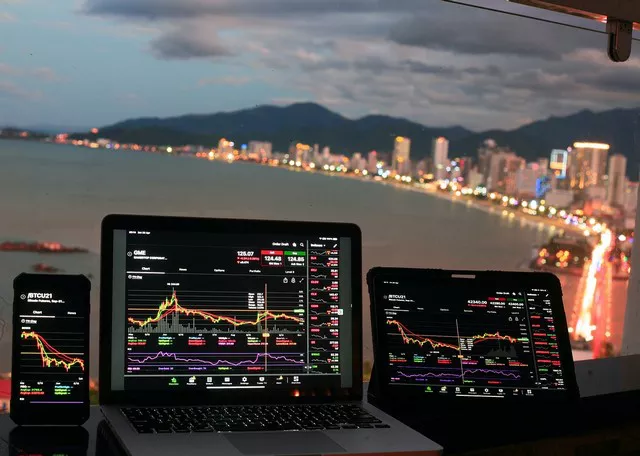Futures trading is a dynamic and intricate financial market where participants engage in contracts to buy or sell assets at a predetermined future date and price. One crucial element of futures trading is the concept of margin, a financial term that plays a pivotal role in facilitating these transactions.
Defining Futures Margin
Futures margin, often referred to simply as “margin,” is a financial term that represents the amount of money or collateral a trader must deposit with their broker to open and maintain a futures position. It serves as a good-faith deposit, ensuring that the trader has the financial capacity to fulfill their obligations within the futures contract. The margin requirement is established by the futures exchange and is a percentage of the total value of the contract.
Initial Margin vs. Maintenance Margin
Futures margin is typically categorized into two main types: initial margin and maintenance margin. Initial margin is the amount of money required to open a futures position, acting as a security deposit. Maintenance margin, on the other hand, is the minimum amount of margin that must be maintained in the trading account to keep the position open. If the account’s margin falls below the maintenance level, the trader may receive a margin call, requiring additional funds to bring the margin back to the initial level.
Calculation of Futures Margin
The calculation of futures margin involves multiplying the contract’s size by the futures contract’s price and applying the margin percentage set by the exchange. For example, if a futures contract has a notional value of $100,000, and the exchange requires a 5% margin, the trader would need to deposit $5,000 as the initial margin. It’s crucial to note that margin requirements can vary across different futures contracts and exchanges.
Leverage and Futures Margin
One of the key features of futures trading is the use of leverage, allowing traders to control a more substantial position with a relatively smaller amount of capital. Leverage amplifies both potential gains and losses, making the role of futures margin crucial in managing risk. While leverage enhances profit potential, it also demands a thorough understanding of risk management to prevent significant losses.
Risk Management and Margin Calls
Futures margin serves as a risk management tool, ensuring that traders have sufficient funds to cover potential losses. When the market moves against a trader’s position, and the account’s margin falls below the maintenance level, a margin call is triggered. A margin call requires the trader to deposit additional funds to bring the margin back to the initial level. Failure to meet a margin call may result in the forced liquidation of the position.
Mark-to-Market and Daily Settlement
The futures market employs a practice known as mark-to-market to account for daily price fluctuations. At the end of each trading day, the gains or losses on a futures position are calculated and reflected in the trader’s account. If the position incurs losses, the trader may need to deposit additional funds to meet the maintenance margin. This daily settlement process ensures that traders are continually meeting margin requirements as market conditions evolve.
Cross-Margining
Cross-margining is a risk management technique that allows traders to offset losses in one futures position with gains in another. This approach is particularly relevant for traders engaged in multiple futures contracts. By consolidating margin requirements, cross-margining provides more efficient capital usage and can be beneficial for those with diversified portfolios.
Variation Margin
Variation margin refers to the funds transferred between the two parties involved in a futures contract to cover daily price fluctuations. If a trader’s position incurs losses, the variation margin is used to offset these losses, ensuring that the account’s margin remains above the maintenance level. The daily exchange of variation margin helps maintain the integrity of the futures market.
Role of Clearing Houses
Clearing houses play a crucial role in the futures market by acting as intermediaries between buyers and sellers. When a trade is executed, the clearing house becomes the counterparty to both parties involved. The clearing house ensures the integrity of the market by overseeing margin requirements, facilitating daily settlements, and managing the financial aspects of futures trading.
Regulatory Oversight and Margin Rules
Futures markets are subject to regulatory oversight to maintain fair and transparent trading practices. Regulatory bodies establish and enforce margin rules to ensure the financial stability of the markets. These rules dictate the minimum margin requirements, permissible leverage levels, and other factors that contribute to the orderly functioning of the futures market.
Margin Efficiency and Trading Strategies
Traders often explore different strategies to optimize margin efficiency and maximize capital utilization. Effective risk management, diversification of positions, and careful consideration of leverage are essential components of margin-efficient trading. Understanding the intricacies of margin allows traders to implement strategies that align with their risk tolerance and overall objectives.
Educating Traders on Margin
Education on the mechanics of futures margin is paramount for individuals entering the futures market. Brokers and educational resources provide information and tools to help traders understand margin requirements, calculate potential risks, and make informed decisions. A thorough grasp of how futures margin works empowers traders to navigate the complexities of the market with confidence.
Conclusion
Futures margin is a fundamental aspect of futures trading, serving as a risk management tool and facilitating the efficient functioning of the market. Traders engaging in futures contracts must grasp the nuances of margin requirements, leverage, and risk management to navigate the market successfully. By understanding how futures margin works, participants can make informed decisions, manage their capital effectively, and navigate the dynamic landscape of futures trading with greater confidence. As an integral component of the financial markets, futures margin plays a crucial role in shaping the risk-reward dynamics of futures trading.


